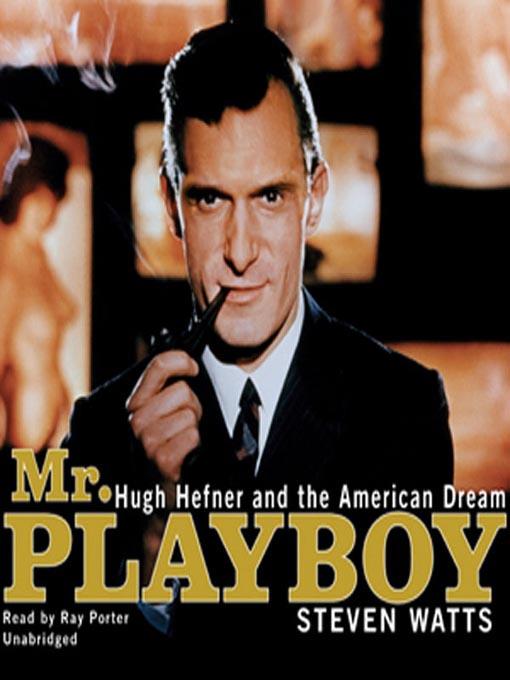
Mr. Playboy
Hugh Hefner and the American Dream
کتاب های مرتبط
- اطلاعات
- نقد و بررسی
- دیدگاه کاربران
نقد و بررسی

Few have colored the cultural palette more than Hugh Hefner. The sexual titillation he introduced with PLAYBOY magazine in the fifties now permeates society. In fact, in a culture in which porn-on-demand is a rite of passage. Hef's innovations seem tame. But it wasn't always that way--from his Midwestern Quaker roots to his vast empire in Chicago--which made the whole concept of "lifestyle" a birthright to affluent and upwardly mobile young Americans--Hefner has always courted controversy. Steven Watts's biography presents a more complex personality lurking behind the pipe and smoking jacket, and Ray Porter's courtly manner suggests indignation, and near envy, over Hefner's excesses. The tension is well suited to the tangled web of contradictions that Hefner embodies. J.S.H. (c) AudioFile 2009, Portland, Maine

July 28, 2008
As he did in his previous books on Henry Ford (The People's Tycoon
) and Walt Disney (The Magic Kingdom
), Watts carefully details the life of Hugh Hefner and the influence his Playboy
magazine has had on American culture. Using unrestricted access to the magazine's archives, Watts skillfully charts the intersection of Hefner's professional and personal history: the “sexual titillation” of his first issue; his mid- to late-1960s championing of leftist politics and writers such as Norman Mailer and Kurt Vonnegut; his 1970s retrenchment after assaults by the women's liberation movement; his financial and personal troubles in the '80s and '90s; and his current position as the “retro cool” figurehead of an institution that is now a “midsize communications and entertainment company.” Watts evokes a time when Playboy
was seen by its critics as a key “symptom of decadence in American life,” and is at his best when exploring his subject's early years, showing how Hefner's sexual and material “ethic of self-fulfillment” drove him to challenge “the social conventions of postwar America.”

























دیدگاه کاربران